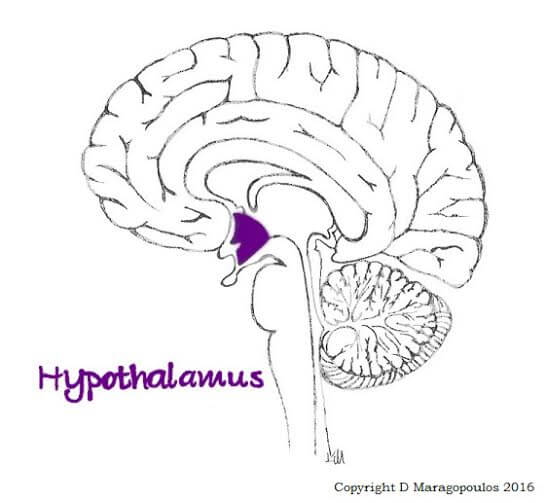Did you know that your emotions are directly influenced by hormones? Let’s talk about how to feel your emotions and heal your emotional hormones.
Every woman knows her hormones affect her emotions.
As her hormones shift throughout her menstrual cycles so do her emotions. And more so when she’s pregnant or going through the change of life.
Estrogen is your joy hormone. Estrogen fuels your creativity. And helps you imagine the overall picture.
Progesterone is your calming hormone. It helps you focus. And keeps you on track.
Testosterone is your motivating hormone. It can get you going. Help you be more assertive and confident.
But it’s not just your sex hormones that affect your emotions.
Thyroid hormones affect how well your brain chemistry functions – directly affecting your moods. T3 in particular helps neurotransmitters like serotonin and dopamine get into your neurons.
Adrenal hormones – the fight or flight – stress hormones – greatly affect your emotions. Chronic stress overstimulates your HPA axis – the communication network between your hypothalamus, pituitary and adrenal glands. Studies have shown that people with clinical depression or bipolar condition have significant change in their hypothalamus.The same thing happens to people who suffer from PTSD.
Your hypothalamus, which directs all your hormones all the time, is also the gatekeeper of your emotions.
In over 30 years of helping hormonally challenged patients get back in balance, I have found that if you don’t deal with your emotions, you will not heal your emotional hormones. We begin by supporting their hypothalamus. Why?
Because your hypothalamus is programmed to help you survive.
If it doesn’t get what it needs nutritionally, it will not be able to get your hormones in balance. And very few of us can get all the phytonutrients our hypothalamus needs from our diets alone to function optimally.
And your hypothalamus will not allow you to use your limited resources to process your emotions when it’s fighting for your survival. So feed your hypothalamus what it needs for you to heal.
LEARN MORE ABOUT SUPPORTING YOUR HYPOTHALAMUS NUTRITIONALLY HERE

It takes time to heal your hypothalamus, at least three months. So be patient. And know that in the process of nutritionally supporting your hypothalamus you will become much more aware of your emotions. And that’s a good thing.
Because awareness is the first step. If you can not identify what you’re feeling, you can’t heal it.
Only after you become aware of your emotions can a deeper exploration take place to really heal.
Unfortunately, many of us have not been taught to explore our emotions. Especially negative emotions. Emotions like anger, guilt, shame. Fear, sadness, frustration. Bitterness, disappointment, hopelessness.
As children, our positive happy emotions are encouraged. But our negative emotions are not. So we learn to suppress them. Often with poor coping mechanisms like alcohol and drug abuse or eating disorders. Or maybe you learned to keep moving so fast, working too hard to keep your emotions at bay.
There’s lots of ways we avoid feeling our emotions.
But eventually, our emotions surface. And many times as a disease. Yes. Trapped emotion can cause so much hormonal and biochemical imbalance that you can make you sick.
Grief for instance often affects your lungs.
Sadness can affect your heart – people do die of a broken heart.
Worry affects your gallbladder.
Suppressed emotion often leads to irritable bowels.
Fear can surface as rashes.
Enough stress can literally cause your hair to fall out.
Every part of your body is affected by your emotions. When you don’t allow yourself to fully feel your emotion, then it becomes trapped. And you will eventually feel it – as a physical symptom – somewhere in your body.
The role of emotion influencing disease is well known in integrative medicine. Yet even in conventional allopathic medicine, we’ve been aware since the 1930s. More research is being done that supports how our emotions affect our health.
If we don’t acknowledge and truly feel these shadow emotions, they get buried. Deep in our cells and become the fuel for physical and mental imbalances.
Even if you weren’t taught to really feel and release your emotions as a child, it’s not too late.
Why don’t you join me in our Hormone Support Group which you can access by signing up for my free Hormone Reboot Training. Let’s talk about how to heal your emotional hormones.
Research Reference: Emotion and its disorders: Imaging in clinical neuroscience, The Role of Emotion in Disease, Relevance of Stress and Female Sex Hormones for Emotion and Cognition, How Stress increases Risk of Heart Disease and Stroke.
*Statements not reviewed by the FDA.




“What” is the 5% increase in the hypothalmus(?) Size / growth? Activity? Which activity(ies), if cited? Passivity?
5% increase in size of the hypothalamus in people with depressive mood disorders.